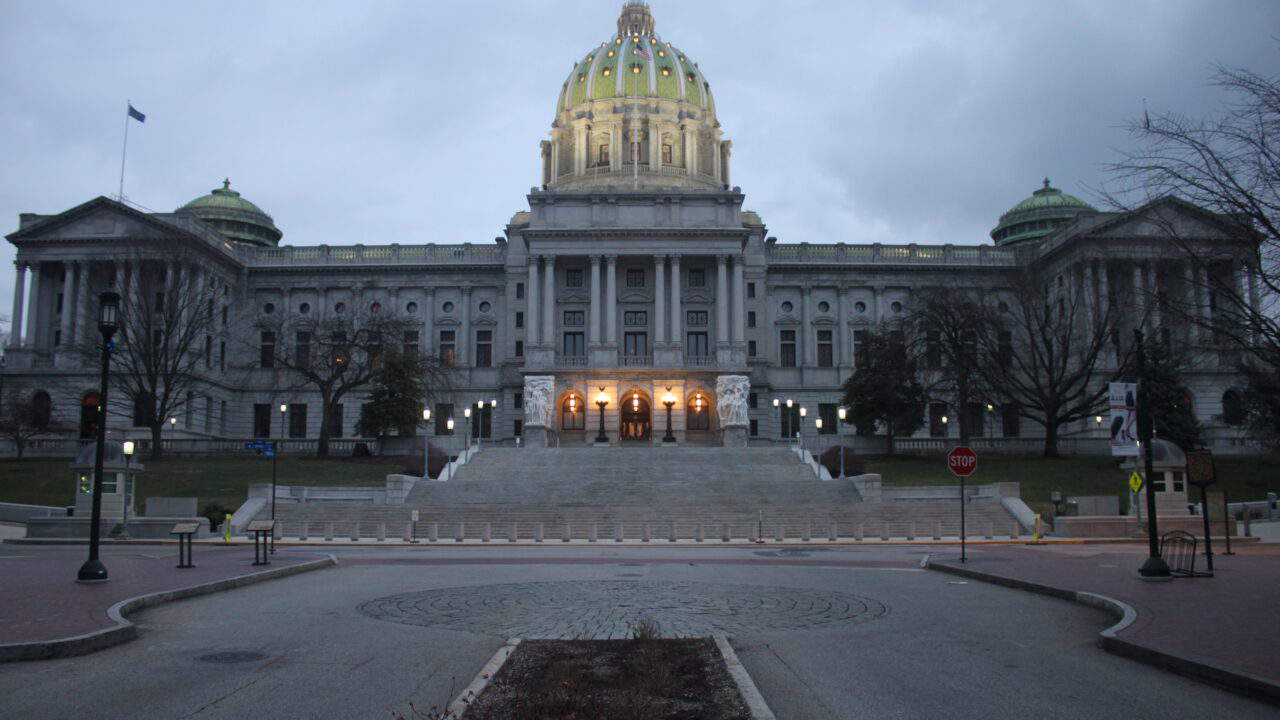 Pennsylvania Capitol by Joseph is licensed under CC BY-NC-ND 2.0.
Pennsylvania Capitol by Joseph is licensed under CC BY-NC-ND 2.0.
Shapiro proposes over $48.3 billion in general fund spending, a steep 7.1% increase from last year. The 2023-24 budget already includes a budget deficit, but the Governor’s plan inflates it to a whopping $3.6 billion. His plan to support this egregious deficit spending? Draining the state’s Rainy Day Fund.
Pennsylvania’s Rainy Day Fund is not a “surplus;” it’s a savings that’s designed to protect taxpayers during future recessions. The issue with using the fund to fuel Shapiro’s budget (aside from bad policy) is that it’s actually against Pennsylvania state law, which establishes that the fund can be used “only when emergencies… or downturns in the economy resulting in significant unanticipated revenue shortfalls” occur and that it “shall not be used to begin new programs.”
Shapiro’s plan fails to bring the new budget into balance, which will drive pressure to increase taxes after his reelection. Pennsylvania’s Commonwealth Foundation estimates, “The cost to cover Shapiro’s $3.4 billion deficit in 2026 equals a tax hike of $1,000 per family of four.”
The budget shifts the governor further away from his campaign statements in support of school choice. The plan does not include funding for the Lifeline Scholarship Program, also known as the Pennsylvania Award for Student Success (PASS), which gets students out of failing public schools. On top of that, the budget cuts over $262 million for students attending public cyber charter schools. Instead, Shapiro proposes another $1.6 billion for public schools – going from $15.5 billion to $17.1 billion – despite a steady decline in public school enrollment.
The budget spends more on public universities, diverts even more state tax revenue to bail out failing transit agencies, and raises the minimum wage to $15/hour.
Governor Shapiro’s plans would put Pennsylvania’s spending into overdrive.
Americans for Tax Reform’s Sustainable Budget Project shows that Pennsylvania’s budget has already grown faster than taxpayers can afford. ATR reports that in 2023, the state’s overall budget is $28.2 billion higher than it would have been had spending grown at the rate of population growth plus inflation over the past decade, meaning that the state spent and taxed $148 billion too much.
Republican Pennsylvania legislators have proposed the Taxpayer Protection Act multiple times to do just that, keep spending under control. The failure to enact this legislation stings now more than ever with Governor Shapiro’s big-spending budget proposal. Pennsylvania taxpayers need to watch out, and legislators should push back hard.

